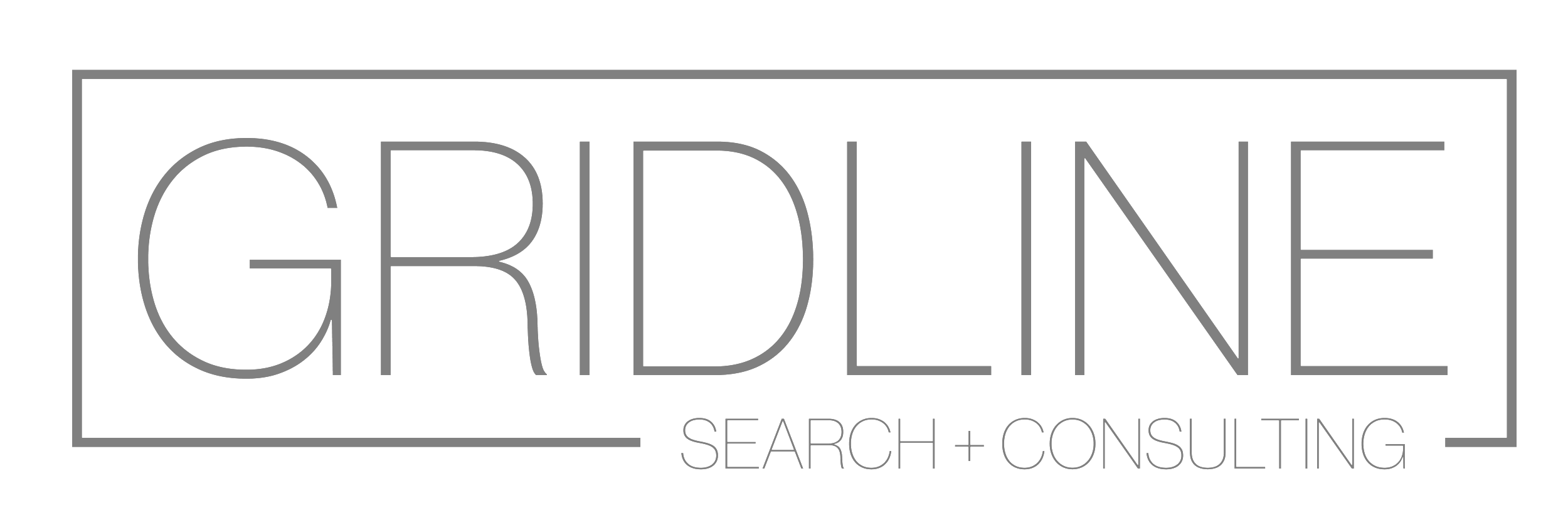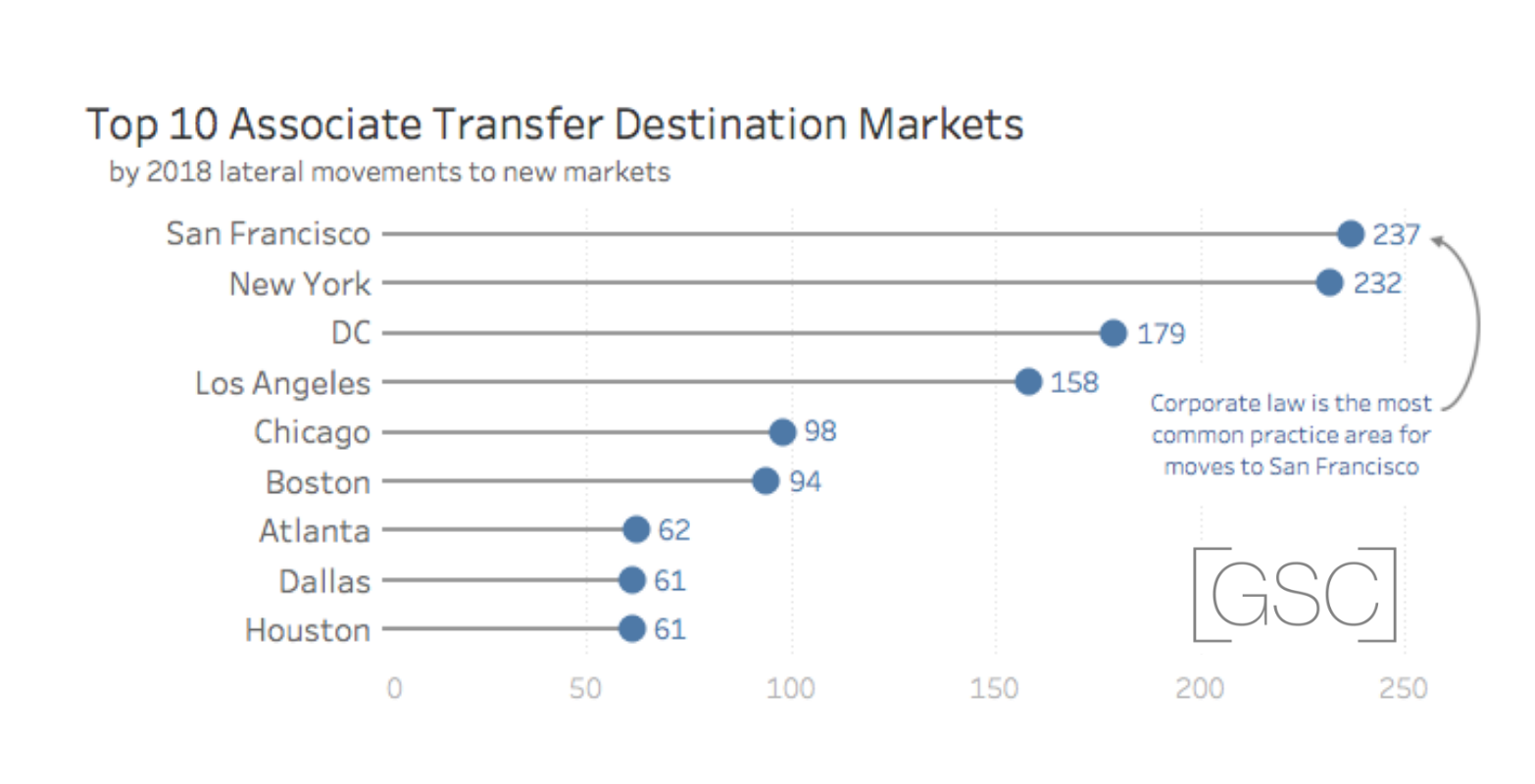It's becoming both easier and more popular to make a geographic move as a BigLaw associate. This is the result of a few trends when it comes to the legal labor market:
The expansion of the Uniform Bar Exam (UBE) to more states across the country means that it's easier for lawyers to get admitted into multiple states at once and/or transfer bar exam results from one state to another.
Multiple legal markets are very strong right now and the need for talent expands beyond the lawyers that are already practicing there (this is particularly the case when it comes to Boston and the Bay Area).
Generally speaking, the number of associates making a lateral move of some kind is at an all-time high with the National Association for Law Placement (NALP) reporting an average number of 16.5 lateral hires in 2018 amongst a surveyed group of 428 law offices. This represented a 14.4% increase in lateral hiring over 2017.
National firms continue to open new offices in large cities across the U.S., leveraging the firm's practice reputation in its existing offices to market to new clients in the new market.
Practices at large firms are also "nationalizing," meaning if there is demand for talent in a particular legal service, they will look to staff up across multiple office. In an individual office, the attorneys prioritize service to the local clients, but increasingly attorneys work virtually with others in their practice group across other offices of the firm, as as the work ebbs and flows within each office.
If you're thinking of making a geographic move, there's never been a better time.
When it comes to considering a geographic move, here are some FAQs for BigLaw associates:
How do I find a legal recruiter for my geographic move?
Most legal recruiters are identified through personal referrals. But if you don't know any attorneys in your target market, this might not be possible. Conduct a Google search and take a look at some online legal recruiter directories. Most recruiters are clear on their websites about who they work with and where. (Through Gridline Search + Consulting, for example, I primarily work with larger law firms in the big U.S. legal markets, using recruiter connections and industry knowledge I gained through my time as a career advisor at Harvard Law.)
I like my current firm. I just need to move geographically for personal reasons. Should I just ask for an office transfer?
Maybe. But does that other office have the practice area that you work in? Is the culture of the other office the same as your current one? Do you know anyone in the new office that would be interested in advocating for your office transfer? Will your current team help you make the move or will it be hard for them to let you go? If the answers to these questions present complications, it may be best to look for a new employer in your target market. (I talk about this further in my article "Why Lateral?")
When is the right time to make a geographic move?
As a BigLaw associate, you are most marketable for an associate lateral move with 2-5 years of experience. This is generally true whether you are looking to stay in the same market or make a geographic move.
What if I am not admitted into the state where I plan to move?
Start by taking a look at the bar admission resources provided by the National Conference of Bar Examiners (NCBE). If you are a junior associate admitted to a UBE state, you may still be able to port that score to a new UBE state. If you are a senior associate, you may be eligible for "admission by motion" to the new state based on your years of continuous practice in your current state. If something is unclear from a website or written resource, don't rely on word of mouth. Call the state's board of bar examiners directly.
Most firm offices will require that you eventually be admitted into the state where they are located. If you ultimately need to take a new bar exam, sometimes the firm will even give you time off and cover expenses while employed at the new firm (this is more often provide to corporate associates making a lateral move than to litigation associates).
Will the firm fly me out for an interview? Will they pay the expenses?
When interviewing a candidate from another market, most large firms will start with a screening interview via phone, videoconference or with attorneys or staff located in an office closer to you. After this, they will likely require at least one round of in-person interview. Most large law firms will pay for reasonable expenses related to this trip.
Will the new firm pay for my relocation expenses?
In most cases, yes they will. In terms of the exact amount and method, this is something that typically gets negotiated when an offer of employment is made through your recruiter.
My spouse got a new job already, so I need to make the move as soon as possible. How long does the process typically take?
Timing for a geographic move as a lateral associate depends on a lot of factors - your target market, your level of experience, your practice, your current firm, your credentials, etc. It could take a couple weeks to move or it could take several months. You will want to talk with your recruiter about the urgency of your timing and what you can expect. If it sounds like your search could take a long time, you might ask your current employer if it's possible for you to work remotely while you search for a new job in your new market. (Don't just quit your job and then start searching. If your resume indicates this, it might send a negative signal about your candidacy.)





